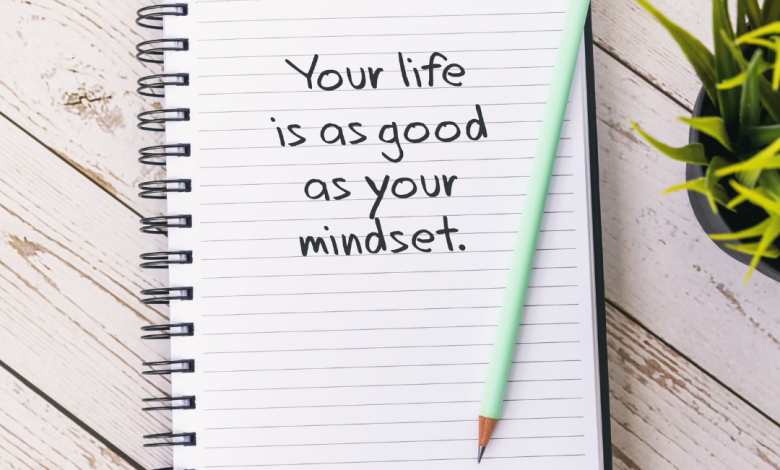How to Develop a Growth Mindset?

In this article we are going to discuss about How to Develop a Growth Mindset? A growth mindset, a concept introduced by psychologist Carol Dweck, is the belief that abilities and intelligence can be enhanced through dedication and hard work. This mindset contrasts with a fixed mindset, which holds that abilities are static and unalterable. Developing a growth mindset can transform how individuals approach challenges, view effort, and perceive failure.
How to Develop a Growth Mindset?
This article delves into the principles of a growth mindset and offers practical strategies for cultivating it.
1. Understanding the Growth Mindset
At its core, a growth mindset is about believing in the potential for growth and improvement. Individuals with a growth mindset view challenges as opportunities to learn and develop new skills. They recognize that effort and persistence are essential for success, making them more likely to embrace challenges and persevere through setbacks. Conversely, those with a fixed mindset tend to avoid challenges, give up easily, and feel threatened by the success of others, as they believe their abilities are fixed and unchangeable.
2. The Importance of a Growth Mindset
Adopting a growth mindset has far-reaching implications for personal and professional development. It nurtures a love of learning, builds resilience, and encourages a positive attitude towards challenges. Individuals with a growth mindset are more likely to take risks, innovate, and achieve their goals. This mindset not only enhances individual performance but also contributes to a more dynamic and adaptable organizational culture.
Also Check: 10 Best Websites to Answer Questions
3. Recognizing Fixed Mindset Triggers
Developing a growth mindset begins with recognizing fixed mindset triggers. These triggers can include fear of failure, the need for approval, and a tendency to compare oneself to others. By identifying these triggers, individuals can start to challenge and reframe their fixed mindset thoughts. For example, instead of viewing failure as a reflection of one’s abilities, one can see it as a valuable learning experience.
4. Embracing Challenges
A key characteristic of a growth mindset is the willingness to embrace challenges. Challenges provide opportunities for growth and learning. When faced with a difficult task, individuals with a growth mindset approach it with curiosity and determination. They understand that overcoming challenges often requires perseverance and sustained effort. To cultivate this attitude, it is helpful to set challenging but achievable goals and to view obstacles as stepping stones rather than roadblocks.
5. Reframing Failure
Reframing failure is crucial for developing a growth mindset. Instead of seeing failure as a negative outcome, individuals can view it as an essential part of the learning process. This shift in perspective encourages experimentation and risk-taking, which are vital for growth and innovation. To reframe failure, it can be helpful to reflect on past failures and identify the lessons learned. Embracing a “fail forward” mentality, where each failure is seen as a step closer to success, can also reinforce a growth mindset.
6. Cultivating a Love of Learning
A growth mindset flourishes on a love of learning. This involves maintaining a sense of curiosity and openness to new experiences and knowledge. Lifelong learning can be encouraged by seeking out new challenges, exploring diverse interests, and staying up-to-date with developments in one’s field. Engaging in activities such as reading, attending workshops, and participating in professional development opportunities can help nurture a love of learning.
7. Fostering Effort and Persistence
Effort and persistence are essential elements of a growth mindset. Individuals with a growth mindset understand that success often requires hard work and sustained effort. They are more likely to persevere when facing difficulties and setbacks. To foster effort and persistence, it is important to set realistic goals, break tasks into manageable steps, and celebrate progress along the way. Building a support network of mentors, peers, and coaches can also provide encouragement and accountability.
8. Seeking Feedback and Learning from Criticism
Feedback is crucial to the growth process. Individuals with a growth mindset actively seek feedback and use it to enhance their performance. They see criticism as an opportunity to learn and grow rather than as a personal attack. To develop this attitude, it can be helpful to ask for specific, constructive feedback and to approach criticism with an open mind. Reflecting on feedback and identifying actionable steps for improvement can also enhance the learning process.
Also Check: Top Websites in the World
9. Building Resilience
Resilience is a key aspect of a growth mindset. It involves the ability to bounce back from setbacks and continue pursuing goals despite difficulties. Building resilience requires developing coping strategies, maintaining a positive outlook, and focusing on long-term goals. Practices such as mindfulness, meditation, and physical exercise can help build resilience by reducing stress and improving emotional regulation. Additionally, seeking support from friends, family, and professional networks can provide valuable resources and encouragement.
10. Encouraging a Growth Mindset in Others
Fostering a growth mindset is not only beneficial for individuals but also for teams and organizations. Leaders and educators can play a crucial role in promoting a growth mindset by creating an environment that encourages learning, experimentation, and collaboration. This can be achieved by setting high expectations, providing constructive feedback, and recognizing effort and improvement. Encouraging open dialogue, sharing success stories, and celebrating milestones can also help cultivate a growth mindset culture.
11. Overcoming Obstacles to a Growth Mindset
Developing a growth mindset can be challenging, especially in environments that emphasize fixed traits and abilities. Overcoming these obstacles requires a conscious effort to challenge and change fixed mindset beliefs. It is also important to surround oneself with supportive individuals who reinforce growth mindset principles.
Conclusion
Developing a growth mindset is a transformative process that can significantly enhance personal and professional development. By embracing challenges, reframing failure, cultivating a love of learning, fostering effort and persistence, seeking feedback, building resilience, and encouraging a growth mindset in others, individuals can unlock their potential and achieve their goals. While the journey may be challenging, the rewards of adopting a growth mindset are profound, leading to greater adaptability, innovation, and success in all areas of life. By continuously striving to develop and reinforce a growth mindset, individuals can navigate the complexities of life with confidence, resilience, and a passion for learning and growth. So, I hope now you have understood How to Develop a Growth Mindset.









